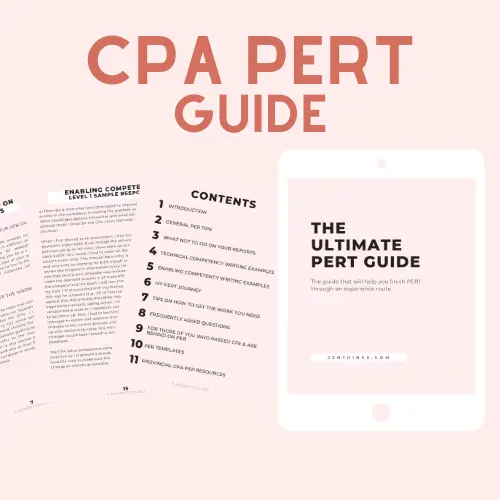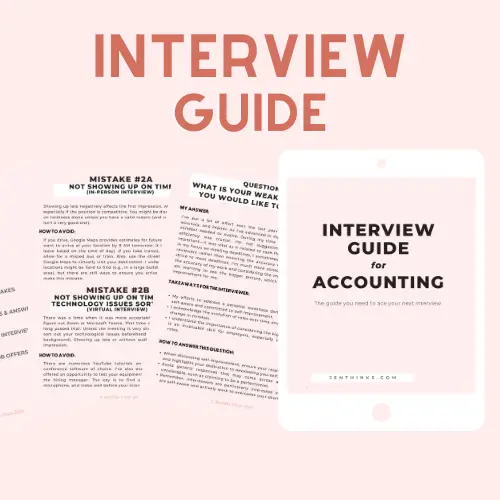I wrote a letter to those of you who did not pass all three days of CFE last week. If you are reading this, I hope it means you are mentally ready to think about your next step. If you are not, it is absolutely fine. Everyone handles situations differently. Just because someone else you know has moved on, it does not mean you need to rush. I always say to readers who are having a rough time or feeling uncertain: CFE will be there for whenever you are ready. So, unless your time limit to finish the program is coming up, I encourage you to take as much time to rest as you need.
My hope for you is to walk into your next CFE feeling as ready as ever and walk away from it feeling confident about your efforts (if I did, so can you). If you don’t think this is possible, I want to stop that thought right here.
Believing in yourself is more powerful than you can imagine.
1) Know The Rules of The CFE Game Very Well
A friend of mine passed CFE after his third attempt. When I asked him what he thought he did differently during his last and successful attempt, he said he finally played by the rules. That comment really stuck with me. Throughout my CFE research, I have learned a lot from candidates who wrote CFE more than once. A common theme is their initial lack of knowledge of the rules of CFE. For day 1, how do you pass? For day 2 & 3, what do the 4 levels mean? Some might find out only after they failed the first time and were given a report where it showed the level(s) you failed.
In fact, I shared in one of my first CFE posts what you need to know about CFE before you start studying. Obviously, I know a lot more now than months before I actually wrote CFE. Going through the process myself has taught me a lot. That is why I created these CFE guides for all 3 days merely three weeks after I wrote CFE.
I walked away from day 3 feeling really confident about my performance. In fact, I knew I passed for sure until a week before results release when I started doubting myself irrationally by wondering if I missed a whole page of the exam (the waiting finally got to me). Looking back, I attributed to feeling as confident as I did to two factors:
- the work I put in to technical reviews and case-writing (this is non-negotiable)
- knowing how to pass all 3 days of CFE (this helped focus my attention and time)
If I have to give an elevator pitch of my CFE guides, it will go like this:
“Imagine you have an older sister who just wrote and passed CFE. Naturally, she will share all she knows about the three-day exam. She is not going to teach you about tax rules or revenue recognition because she can’t keep up with the changes. However, she will share tips and tell you what she knew from reading about it obsessively and experiencing it herself. That’s what my CFE guides offer.”
However, what my guides don’t offer is a magical way or never-heard-of trick to pass CFE. No matter how much money you spend on extra resources (e.g., guides, tutoring), the person that needs to do the bulk of the work is YOU. No matter what these resources claim to do, your faith should be put on yourself. These resources can only help you go so far by offering guidance on how to best focus your effort and utilize your time. At the end of the day, you are the one writing the exam.
2) Adjust Your Mindset
A lot of candidates I talked to would look back to CFE prep and be reminded with a lot of negative emotions. They were exhausted, frustrated, nervous and so on. Some of them passed the first time and some passed during their second or third attempt. However, now that I have gone through the whole CFE process myself (I passed 2021 Sep CFE), I can tell you with certainty that it does not have to be that way.
I am not going to tell you it was easy because it was not. It required a lot of discipline to keep at it for months. As I made it my job to be as informed about CFE as I could possibly be, I did everything possible (e.g., I started CFE prep early, I prepared myself mentally for setbacks) to experience as little stress as I can. Even then, I experienced the infamous burn-out few weeks before CFE. Looking back, I am glad I shared my struggles when I did. Reading about the experience in my own words helped me realize exactly how far I have come. How proud I should be for overcoming that. Remember, nothing worth having comes easy.
However, there weren’t only the negatives. I am sharing the positive sides of my CFE prep in hopes that you will be inspired to pay attention to the good side. I know having a positive mindset is much easier said than done but I promise you it is worth it. Consciously choose not to torture yourself for having to go through it again. As mentally and physically draining the CFE prep process can be, it is a challenge worth overcoming.
Passing CFE does not magically make you a better accountant. However, if you appreciate what you put in to get there, you will become a better anything.
I Started A New Role With The Same Company Two Months Before CFE
It was an amazing opportunity with the same company and team. I did not get paid more but I would get to do completely different accounting work in areas I have not done before. Not only was the experience perfect for PERT via EVR, it would look good on my resume if I have full-cycle accounting experience. However, with CFE upcoming, I hesitated about applying until my manager asked. And I am glad he did.
Because of the new role, I was extremely motivated to manage my time well. Once I accepted the offer, I knew I had to meet expectations even with my CFE leave. I was determined not to let that be an excuse (and it should not be because I knew I had to write CFE before I applied). Obviously, it helped tremendously to have a competent team and a supportive environment both at work and in my personal life.
This made my CFE prep experience positive because it offered a chance for me to show myself what I was capable of. I had doubts (I hesitated about applying) but I proved myself wrong. I am not suggesting starting a new role shortly before CFE unless you are confident about the team and the support you will get from your managers. However, the lesson I learned from this is to have faith in your capabilities.
I Got to Enjoy Breakfast Leisurely Everyday
I think I shared my breakfast daily during my CFE leave on my Instagram. It might sound trivial but having the luxury to enjoy breakfast leisurely during the week was a highlight of my CFE leave. I rarely studied over 6 hours a day during the two-and-a-half weeks of CFE leave (broken out in two sections). My CFE leave days averaged from 4 to 5 hours of study time. However, that means I often studied on the weekends when many were advised to take the weekend off to avoid burn-out.
So, think back to how your CFE prep was the first (or second) time around. Are there any adjustments you would make? If long days were extremely difficult for you (it was for me hence I spread it out), consider starting CFE prep early so you can afford to study for shorter periods of time. As much as you read about CFE strategies online, there really is no one magical formula that works for everybody. Therefore, I encourage you to make it a mission to find out for yourself.
I Can Appreciate The Slow But Evident Improvements I Was Making
Before I started CFE prep, I read countless stories from past candidates about the importance of trusting the process. And I did. Almost all of us would start the CFE prep process struggling to finish a Day 2 case in full or a Day 3 case on time. Google was my best friend when I partially attempted my first day 2 cases during the Capstone 2 workshop. I did not resist Googling because I knew for a fact the answer was not in my head. I knew there was no way I can come up with a response so I let myself Google. This was fine for the first week or so. However, at some point, you would need to start relying on nothing but yourself. If you follow some sort of CFE prep process, you would be alternating between technical reviews and cases. This was exactly what I did.
RELATED POST – Update On CFE Prep Plan, My Strengths & Weaknesses
Instead of using a case tracker, I did what probably no one has done before: I shared my lessons learned from each case I attempted on Instagram. Doing so made it clear that I was improving (e.g., I started being able to identify a Tax AO and do nothing else to making a solid RC-worthy attempt). In fact, I was not thrown off by the infamous tax AO on the first case of Day 3 for my CFE (if you wrote 2021 Sep CFE, you know what I am talking about). I can’t say I aced it but I was confident I scored at least a RC (even though I can never confirm that) which was all I needed.
You might not want to share your lessons on Instagram like I did. This is absolutely fine. However, I encourage you to find a way to reflect and record after every case. This is because it helps you learn from your mistakes. Because of the breadth of content CFE covers, you can never follow one person’s strategy and bring home the pass. You need to work on YOUR weaknesses (e.g., I spent more time on tax because that was my biggest weakness). Recording and reflecting is an effective way to identify those weaknesses.
Ending Thoughts
I want to end this post by reminding you that you will be an experienced writer next time around. Even though you might have emotional baggage from your last attempt, you are stronger because of it. The strengths it take to try again is a testament of what you are capable of.


